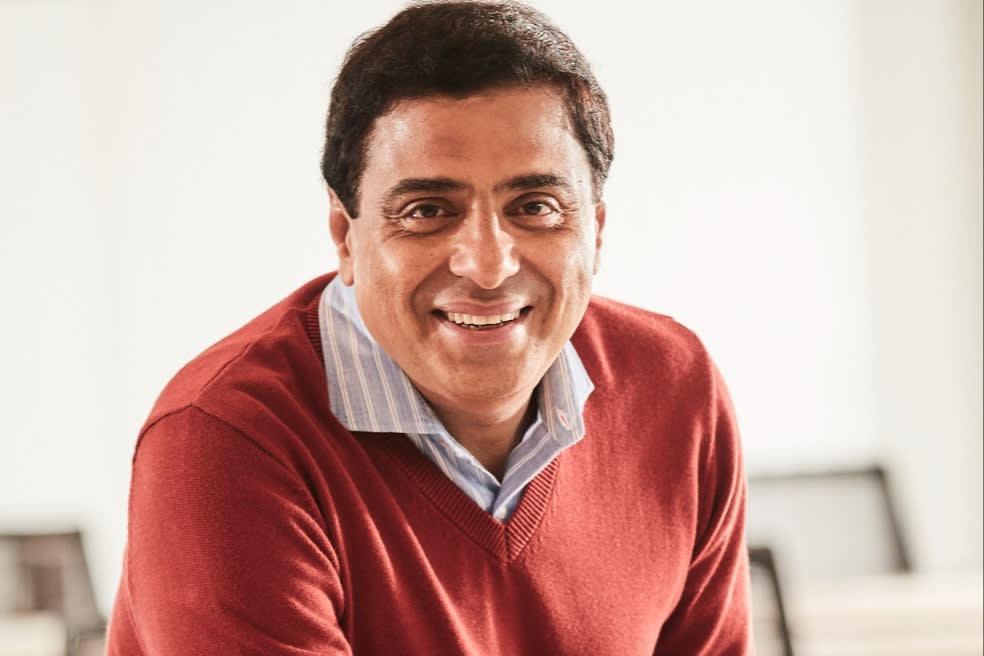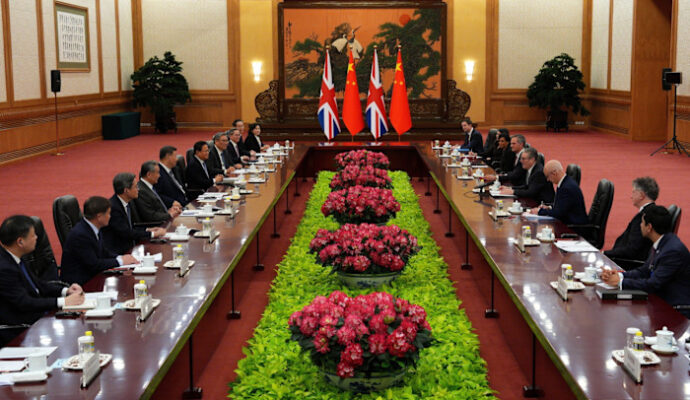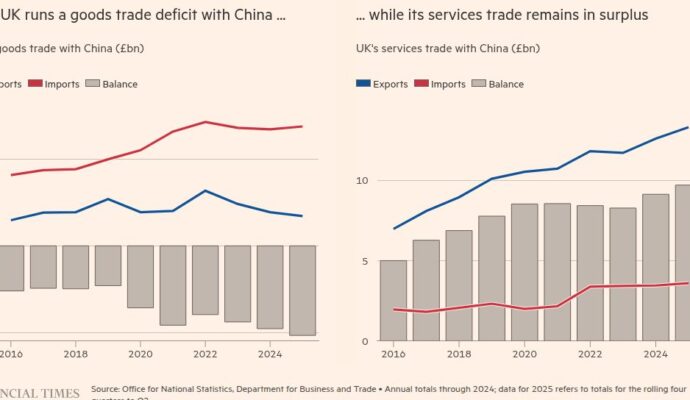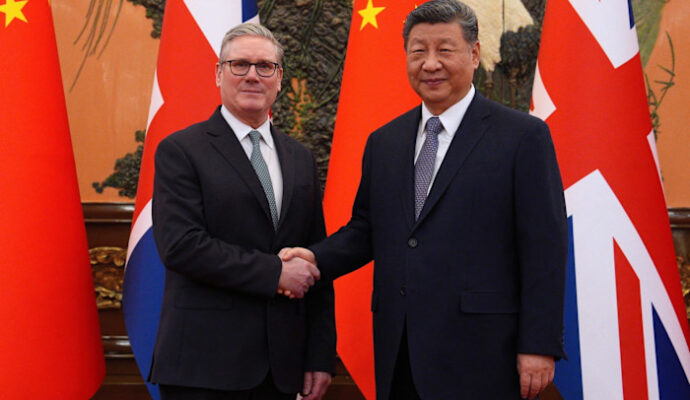Good morning. The Supreme Court had a busy start to the week. It rejected pleas from three telecoms majors — Vodafone Idea, Bharti Airtel and Tata Teleservices — seeking waivers on the charges they owe the government. It also agreed to an urgent request to hear an appeal to quash police proceedings against Ashoka University professor Ali Khan Mahmudabad over a social media post he had written about Operation Sindoor.
On a less serious note, in Friday’s newsletter we asked how often you order on quick-commerce platforms and several of you wrote in. About three times a week seems to be the average (that’s around my number too) and most of you plan to be more strategic, and place fewer but larger orders, if the delivery charges increase. This is the opposite of what the platforms want us to do. My personal goal is to limit it to one order a week, but it is going to take a level of organisation and self-control I am not sure I possess. Let’s start a support group.
Ground (handling) realities
A Turkish group which provides ground handling operations in nine Indian airports is suing the government for cancelling its security clearance, calling the decision arbitrary, unreasonable and without due process.
Çelebi’s court filings assert that the company’s security clearance was renewed for a period of five years in November 2022 and its 3,791 employees were individually vetted and cleared. But after the heightened tensions between India and Pakistan, during which Turkey’s President Recep Tayyip Erdoğan reiterated support for Islamabad, national mood in India turned, with people calling for a boycott of trade and tourist relations with Turkey. On Thursday, India’s bureau of civil aviation security summarily revoked the clearance of all employees of Çelebi Airport Services India and Çelebi Delhi Cargo Terminal Management, leaving them unable to function. The regulator cited national security concerns. The employees were then reassigned to other ground handling companies in order to maintain airport operations.
Çelebi argues that since it is privately owned and not an organisation controlled by the Turkish government, with global blue-chip investors holding a 65 per cent stake, it should be allowed to continue its operations irrespective of Ankara’s geopolitical affiliations. The company also criticised the government order’s “vague” reference to national security and what it said was a lack of justification. I’ve contacted Çelebi’s India operations and the bureau of civil aviation security for comment, but they have not responded.
The next hearing of the case is tomorrow. The case will set an important precedent because it examines a fundamental question of how corporate contracts will hold up in these times of heightened geopolitical tensions. Is a private company liable for decisions that governments make? If yes, then it is not unreasonable to expect that this will also have a reciprocal effect impacting Indian companies that are engaged in overseas operations.
Local television and social media have played a major part in drumming up opposition for the Turkish company’s operation in India. There is no doubt that our national security concerns are paramount. But I am curious to see if the courts will uphold the sanctity of the contract and ask for due process in its termination, or go with the popular sentiment that any company from countries that ally with Pakistan have no place in India.
Do you think the government was right to summarily revoke Çelebi’s clearance? Hit reply or email me at indiabrief@ft.com
Recommended stories
How Lawrence Bishnoi, India’s most notorious gangster, declared war on Salman Khan.
Has Trump abandoned Ukraine? The president has signalled the US will no longer broker peace talks with Russia.
Nvidia, which announced a big investment to manufacture in Taiwan, is seeking to build its business beyond Microsoft, Amazon and Google.
What do AI chatbots say about their own bosses — and their rivals?
Stricter US border controls are forcing executives and academics to rethink their business travel plans.
Bijal Ajinkya, partner at Khaitan & Co, has won the “individual law practitioner” award at the annual FT Innovative Lawyers awards.
Car market hots up

Indian roads are going to get a lot more crowded, as both Maruti Suzuki and Hyundai look to expand their product offering to regain market share from Tata Motors and Mahindra & Mahindra. Maruti Suzuki is targeting “the next 1bn Indians” and aims to double Indian production to 4mn vehicles a year by 2030. Last week, after a fact-finding team visited India to investigate its dropping market share, Hyundai also announced that it would launch 26 new models here in the next five years.
Economic growth in the past few years has altered consumer preferences in the car market. Wealthier Indians, who weathered the economic slowdown better, prefer to drive SUVs, and Tata and Mahindra quickly grabbed market share with their rugged all-terrain cars. Maruti and Hyundai’s portfolios, on the other hand, were heavy on sedans. While Maruti Suzuki continues to be the leader, its market share slipped to 41 per cent and Hyundai, which used to be the second largest car seller in India, slipped to rank four.
India is now the third largest car market in the world. With intense competition in China and tariff-induced uncertainty in the US, global carmakers are also training their sights here, making it difficult for existing players to significantly improve their market share. Maruti Suzuki’s executive vice-president Kenichi Ayukawa told my colleagues that the company was working on its approach to tap the rural Indian market. This is an interesting idea; consumption growth in rural India is growing at a faster clip than urban areas, as we have discussed in this newsletter earlier.
Besides, urban infrastructure will be unable to keep up with a surge in car numbers. Traffic in Indian cities is already a nightmare and parking spots are near impossible to find. While all this enthusiasm about India’s emergence as a big car market is a good indicator of economic prosperity, as a user of Indian roads, I am looking at this with not a small amount of terror. More SUVs in Delhi-NCR? Please god, no.
Go figure
On Friday, Moody’s cut its credit rating for the US, leaving the country without a triple A rating from at least one of the big three agencies for the first time in history. Here’s a look.
AA1
New Moody’s rating
2011
S&P downgrade
2023
Fitch downgrade
But does this downgrade even matter? FT’s Alphaville (I am addicted to their sarcastic tone about everything) weighs in.
My mantra
“I have not looked at anything with a sense of entitlement and that has grounded me in chasing my goals. Zero entitlement is phenomenal. But you cannot cultivate it, it has to be in your DNA.”
Ronnie Screwvala, co-founder and chair, upGrad

Each week, we invite a successful business leader to tell us their mantra for work and life. Want to know what your boss is thinking? Nominate them by replying to indiabrief@ft.com
Quick question
Research suggests that it is possible to get ahead at work if you use AI — as long as you don’t tell your boss. Do you secretly use AI for your work? Take part in our poll here.

Buzzer round
On Friday, we asked: What connects the Swiss watch Tag Heuer, French cognac Hennessy and Rihanna’s Fenty Beauty?
The answer is that they are all owned by the LVMH group.
Ram Teja was first with the correct answer, followed by Yaman Singhania and Aniruddha Dutta. This one was hotly contested, so special mention to Puthucode L Arun Kumar, Poulami Sanyal, Prasanna Venkatesh and Peter Chitroda, who were also quick and right. Congratulations!
Thank you for reading. India Business Briefing is edited by Tee Zhuo. Please send feedback, suggestions (and gossip) to indiabrief@ft.com.


